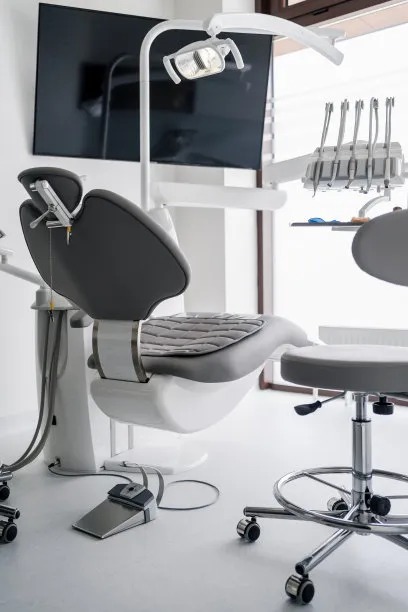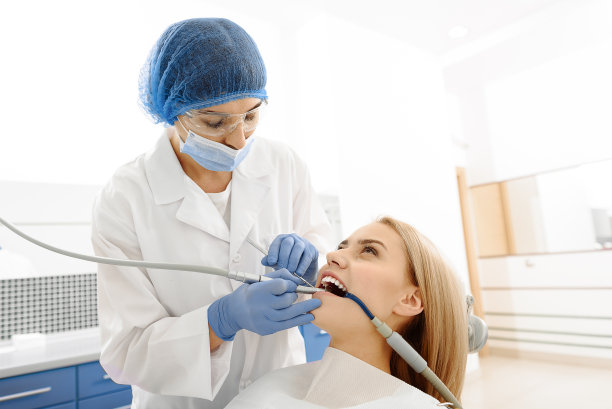Summary: Dental fillings are a common dental procedure that requires careful attention to detail both before and after the appointment to ensure effective healing and lasting results. This article explores essential precautions to take prior to undergoing dental fillings, focusing on pre-treatment preparations, post-treatment care, dietary considerations, and communication with your dentist. By following these practical guidelines, patients can optimize their recovery, minimize discomfort, and prolong the benefits of their dental work. Implementing these precautions will not only enhance your dental health but also contribute to overall well-being.
1. Pre-Treatment Preparations for Dental Fillings

Before you undergo a dental filling procedure, its vital to prepare appropriately. Start by scheduling a comprehensive examination with your dentist. This visit will allow the dentist to assess the extent of decay or damage, determine the necessary filling material, and develop an individualized treatment plan. Having all this information ensures a smoother, more efficient procedure.
Additionally, you should review your medical history with your dentist. Inform them about any medications you are currently taking or any health conditions that may affect the procedure, such as allergies or bleeding disorders. This will help the dental team adjust their approach if necessary, ensuring your safety throughout the process.
Another critical aspect is to arrange for transportation. Depending on the type of anesthesia used during the filling procedure, you may need someone to drive you home. Avoiding any potential discomfort or safety issues can aid your overall experience and recovery.
2. Post-Treatment Care and Recovery Steps
Once your dental filling is complete, post-treatment care is crucial for optimal recovery. Right after the procedure, it is normal to experience some sensitivity or discomfort. Your dentist might recommend over-the-counter pain relief medication, which can be effective in managing any pain you may encounter.
Its essential to avoid chewing on the side of your mouth where the filling was placed for a few hours or until the anesthesia wears off. This precaution will help prevent accidental biting of your cheek or tongue, which can lead to unnecessary injuries and discomfort.
Following the procedure, you should monitor your filling for any signs of discomfort or irregularity. If you experience prolonged pain or notice anything different with the filling, contact your dentist promptly for evaluation. This quick response can prevent further complications and ensure the longevity of your filling.
3. Dietary Considerations for Optimal Healing
Your diet immediately following a dental filling can significantly impact your recovery. Initially, it鈥檚 best to stick to soft foods that don鈥檛 require much chewing. Foods like yogurt, mashed potatoes, or smoothies are great options that can minimize discomfort while allowing you to maintain your nutritional intake.
Avoid sticky or hard foods that could dislodge the filling or cause discomfort. Its also crucial to refrain from consuming very hot or cold items until sensitivity decreases. These measures will ensure that your filling remains intact and your recovery is as smooth as possible.
After a few days of recovery, gradually reintroduce your regular diet. However, continue to practice good oral hygiene by brushing and flossing around the new filling to prevent cavities in surrounding areas. Proper dental care will not only help safeguard your filling but also promote overall oral health.
4. Communication with Your Dentist for Best Results
Communication is paramount in ensuring the success of your dental filling. Don鈥檛 hesitate to ask your dentist questions before and after your treatment about the procedure, recovery, and what to expect. Understanding the process can alleviate anxiety and help you feel more in control.
After your filling, keep an open line of communication with your dentist regarding any concerns you may have. Whether its sensitivity levels or bite adjustments, let your dentist know how you鈥檙e feeling. Their expertise can help troubleshoot any issues swiftly and effectively.
Lastly, be proactive about scheduling follow-up visits as recommended. Regular check-ups are essential to monitor the condition of your filling and your overall oral health. Staying connected with your dental care provider is vital for maintaining long-term success with your fillings.
Summary:
In conclusion, the precautions before and after a dental filling procedure are essential to achieving optimal recovery and lasting results. Preparing adequately, following post-treatment care protocols, making thoughtful dietary choices, and maintaining communication with your dentist significantly contribute to a positive dental experience. Taking these steps will not only enhance the longevity of your dental work but also improve your overall oral health.
This article is compiled by Vickong Dental and the content is for reference only.
Vickong Dental
Vickong Dental is a large medical group established in Hong Kong in 2008 by professors from well-known medical universities in Guangdong and Hong Kong, as well as medical doctors from key national '985' universities (including Master's supervisors and senior professors). The chain of branches brings together expert dentists with PhDs and Master's degrees from Hong Kong and Mainland China, committed to providing high-quality dental treatment.
"Vickong Dental Practices the University Motto of 'Healing and Serving Society,' with a Stable Operation for Sixteen Years. It Has Been honored with Hong Kong Enterprise Leaders's Choice,' and is a Global Trusted Implant Center for the Nobel Implant System. Recommended by Hong Kong Metro Broadcast and Guangdong Television, it Serves Customers from Over Thirty Countries and Regions, Gaining the Trust and Favor of Citizens from the Guangdong-Hong Kong-Macau Greater Bay Area and Surrounding Cities.

Thousands of customers' unanimous praise
The most recognized and highly recommended dental service by customers in the Guangdong-Hong Kong-Macau Greater Bay Area
We Ensure You Receive Detailed Care and Attention Here
Hong Kong standards, Shenzhen prices, Your Trusted English-speaking dentists

Vickong Dental Medical-Grade Instrument Disinfection Process
Vickong Dental Medical-Grade Instrument Disinfection Process

Vickong Dental Chain: A Warm and Comfortable Environment for Treatment






Appointment Hours

Q&A
Why choose Vickong Dental?
Vickong Dental practices the university motto 「Medicine to Benefit Society」, with each branch bringing together highly qualified dentists with doctoral and master’s degrees from Hong Kong and the Mainland, and has maintained seventeen years of steady operation。Recipient of 「2024 Hong Kong Enterprise Leaders Brand」, 「2025 Hong Kong Enterprise Leaders Brand」, a Nobel Biocare Global Trusted Implant Center, and a brand recommended by Metro Radio Hong Kong and Guangdong TV。
To date, we have served customers from more than thirty countries and regions,earning exceptionally high word-of-mouth recognition and trusted recommendations from residents across the Guangdong-Hong Kong-Macao Greater Bay Area and surrounding cities
We have eight major branches in Zhuhai、Shenzhen,and a consultation and service assurance center in Hong Kong,so you can book a free consultation at any time for any questions,which is very reassuring.
If I do not accept the quotation after the CT scan, will I be charged??
No! As long as the actual treatment has not started, you will not be charged any fees.
Will there be any additional charges during the treatment process?
No, there won’t be any additional charges. Before treatment begins, we will clearly explain the treatment plan and its corresponding fees. Only after the patient agrees and signs the consent form will we proceed with the dental service.
Can I pay in Hong Kong dollars?
Yes. Vickong Dental accepts payment in Hong Kong dollars. The amount will be converted based on the exchange rate of the day, and the applicable rate will be clearly communicated to you in advance.
Can I reschedule my appointment at any time?
Yes. Please contact us via **WeChat** or **WhatsApp** as early as possible, providing your original appointment time and details, along with your preferred new date and time slot for rescheduling.













